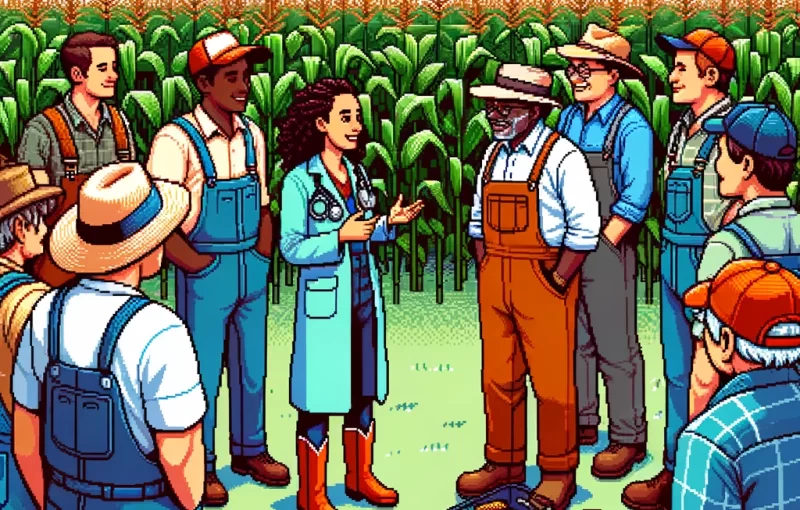
Empowering Rural Missouri through Community Health Workers: A Study on COVID-19 Vaccine Uptake
by Jon Scaccia April 18, 2024The global upheaval caused by COVID-19 has been profoundly felt in rural Missouri, revealing deep-seated infrastructural and socio-economic challenges that have contributed to higher infection and mortality rates in these areas. Amid these challenges, a beacon of hope shone through the establishment of the COVID-19 Response Network in the southeast corner of Missouri.
This network, a collaboration of community leaders, healthcare providers, and researchers, aimed to tackle vaccine inequity through the active participation of Community Health Workers (CHWs).
The Role of Community Health Workers
At the heart of this initiative were the Community Health Workers, who bridged the gap between healthcare services and rural communities. Often, residents of the communities they served, CHWs were pivotal in adapting and communicating health messages tailored to the local context. This was particularly crucial in areas where distrust in government and healthcare systems ran deep.
Understanding Community Dynamics
The study focused on understanding how CHWs facilitated greater community engagement and improved communication strategies, which were essential for increasing COVID-19 vaccine uptake. Through qualitative interviews, it was uncovered that fear-based messaging often backfired, whereas personal stories and emphasizing the protection of loved ones saw better acceptance.
Building Trust Is Key
A recurring theme throughout the study was the importance of trust. CHWs who were known and trusted within their communities were more effective in their outreach. They employed strategies that respected individual autonomy and countered misinformation, which was often rampant in these communities due to political and social polarization.
Visual Aids and Engagement Strategies
To engage effectively, CHWs used a variety of visual aids and tailored their communication to be culturally and contextually relevant. They organized community events where they provided not only information but also a platform for open dialogue, which was crucial for addressing vaccine hesitancy.
Challenges and Successes
Despite facing numerous challenges such as combating widespread misinformation and overcoming logistical barriers in these underserved areas, the network achieved notable successes. Their efforts underscored the importance of community-tailored health initiatives and demonstrated the potential impact of well-coordinated community-academic partnerships.
Conclusion
The COVID-19 Response Network in rural Missouri exemplifies how empowering local individuals as CHWs can significantly enhance public health interventions. Their success serves as a model for other rural areas facing similar healthcare challenges, emphasizing that at the core of effective public health response is the community itself.
Encouraging Reader Engagement
We invite readers to share their thoughts on how community-driven initiatives can reshape rural healthcare landscapes. Have you observed similar efforts in your area? What strategies do you think are most effective in building community trust and engagement? Comment below with your insights!
Join the Movement of Health Innovators – Subscribe for Weekly Insights!
Step into the forefront of public health innovation with ‘This Week in Public Health.’ Every edition brings you closer to the latest developments in research, community health, and advocacy. It’s more than a newsletter – it’s your resource for becoming an informed and active participant in the health community. Subscribe for free and join a network of individuals dedicated to making a lasting impact in public health.
About the Author
Jon Scaccia, with a Ph.D. in clinical-community psychology and a research fellowship at the US Department of Health and Human Services with expertise in public health systems and quality programs. He specializes in implementing innovative, data-informed strategies to enhance community health and development. Jon helped develop the R=MC² readiness model, which aids organizations in effectively navigating change.
Leave a Reply